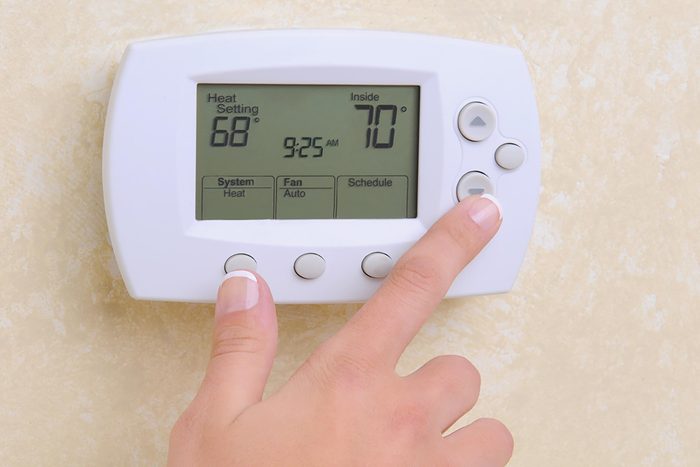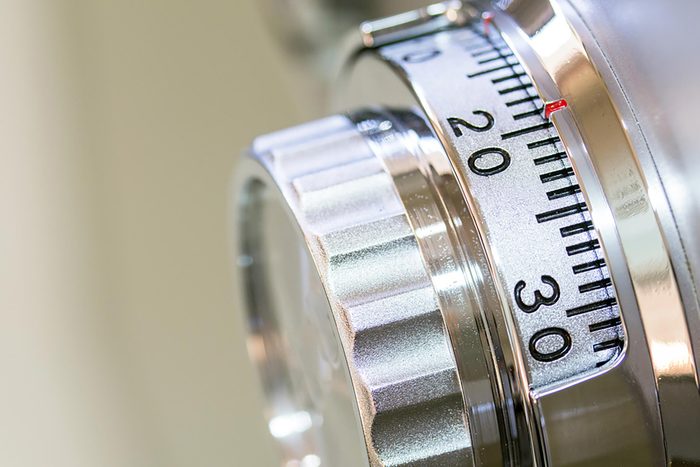
Tidy up
While cleaning may not seem like a priority because you’re not going to be home anyway, leaving a clean house will pay dividends on your return (your nose will thank you!). Mary Cecchini, founder of Living Big, a company that creates inspired adventures for women says you should never leaves home without: Clearing the fridge and pantry of foods that will go bad while you’re away; do the laundry and make sure the washing machine is empty of wet clothes and the dryer is off when you leave; change the sheets (after a day of traveling, there’s nothing better than sliding into your own bed on fresh sheets); take out the garbage and recycling (don’t forget to ask a neighbor to please bring in the cans for you); wash the dishes or run the dishwasher; and keep stagnant water smells at bay by sprinkling a little baking soda in the toilets and down the sink drains. Here is the ultimate travel checklist of things you need to remember for your next trip.
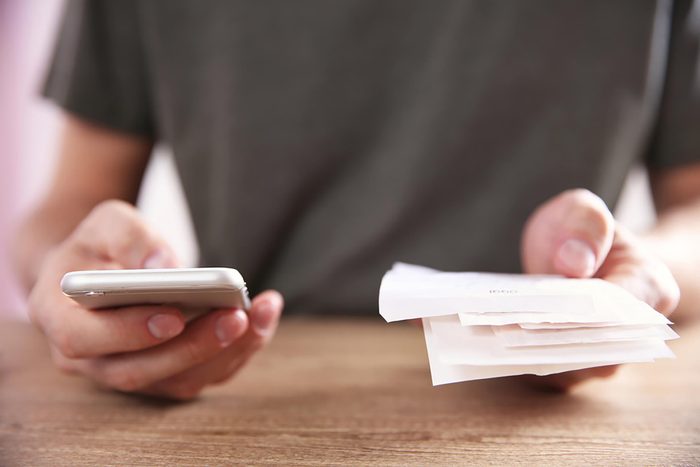
Pay before you go
If you’re not paying your bills online, prepay or schedule payments before you’re wheels up on the runway. There are other implications besides the electric or cable being shut off. “I don’t like to log in to my bank or credit card accounts when using free Wi-Fi for security reasons,” says Patti Reddi, a travel expert and owner of The Savvy Globetrotter. Make sure you know which common travel tips you can safely ignore.
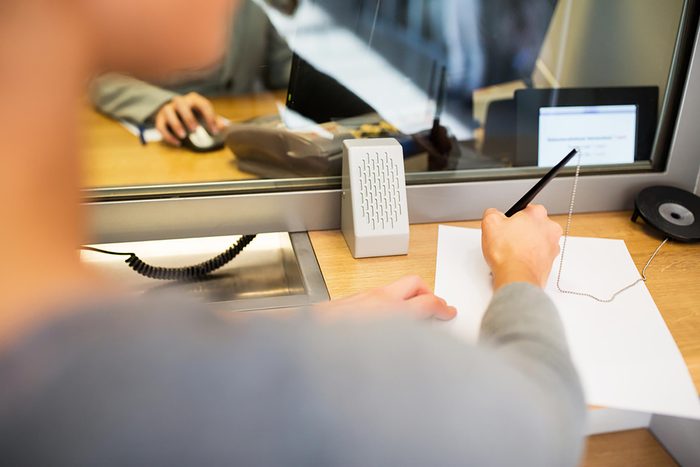
Give your bank notice
“I’m sorry. Your card was denied,” isn’t a phrase you want to hear after enjoying a dinner out on vacation. You have plenty of cash to cover it, so what’s the deal? “A bank might put a fraud alert on your account if they see unusual activity such as charges a different state or country,” says Reddi. “Make sure to contact all banks that have issued your credit, debit, and ATM cards and let them know of your travel plans,” suggests Reddi. Even if you’re just road tripping it across the state lines, this can happen but it’s especially important to inform your bank if your traveling abroad.
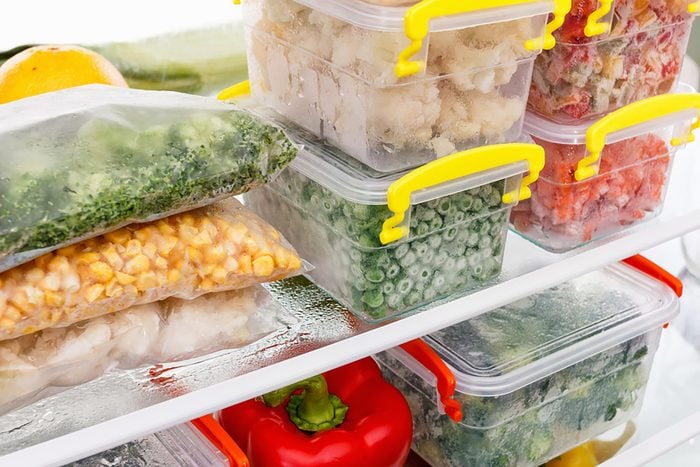
Food for homecoming
It’s great prep to rid the fridge of food that will expire while you’re gone but an empty fridge won’t fill your travel weary and hungry belly when you get home. Milk for that all important morning-after-your-return cup of coffee and other foods can be stored in the freezer. “We stock the freezer with meals that are ready to be heated up for the day after we return or until we have time to go to the grocery store,” says Heather Delaney Reese, a travel blogger who travels with her family and shares their adventures at It’s a Lovely Life. Another helpful tip Reese offers is to place a cup of ice in the freezer so you can tell if there has been a power outage. “If the cup still has the formed frozen ice cubes, you know the freezer didn’t shut off and thaw and refreeze food.”
Adjust the thermostat
Picture this: Save money and energy on your utility bill while you’re lounging poolside by adjusting the A/C or heat. “The Environmental Protection Agency recommends adjusting temperature setting to 85 degrees F, or about 10 to 15 degrees warmer than your preferred in-home temperature,” says Richard Ciresi, owner of Aire Serv, Kentucky. Lucky enough to have an extended vacation? You may want to just turn the A/C off says Ciresi. However, if you live in conditions where your home could reach triple digits and high humidity levels, Ciresi recommends adjusting the temperature setting to 85 degrees F. “This will prevent the growth of mold and mildew and should also preserve temperature sensitive items such as artwork and wine.” Traveling during the winter? Set the temp to no lower than 55°F and ask a neighbor to come over and flush your toilet and turn on the taps so the pipes don’t freeze. Try this tip for peace of mind on your vacation if you regularly find yourself questioning things like whether you locked the back door or turned the thermostat off.

Update friends and family
Some of us may need a vacation from our family and friends but make sure one of them knows your itinerary in the event of an emergency. In addition, it’s a smart idea to download emergency contacts in your phone. “I have the ICE (In Case of Emergency) app in my phone that connects to my brother,” says Maureen McDermott of Moe’s Atlas. “If I’m found, my phone can be searched for emergency contacts and someone will be called.” If you plan on traveling abroad, enroll in STEP, the Smart Traveler Enrollment Program. You’ll be updated by the embassy in your destination country about safety conditions such as a natural disaster, civil unrest, or family emergency and it will help you connect with loved ones in case of an emergency.
Hide the goods
Where’s the best place to hide your valuables, like your Twin Peaks Double R Diner red coffee mug or Les Paul Gibson guitar? It depends on the size, according to Emily Long, safety expert at SafeWise. “For larger and more expensive possessions, go with a safe. The best options generally are element-proof and secured to a wall so they can’t be moved,” says Long. Hide large safes out of sight, like in a closet. “There are also a number of smart safes on the market that use biometric access and send security alerts to your smartphone if someone tries to break in,” says Long. Smaller, portable safes on the other hand are more effective if they are disguised in an empty trash can, in the garage, or among other random items. If you really want to fool would-be thieves, hide smaller valuables in plain sight. Long recommends fake electric sockets, air vents, feminine hygiene boxes, and empty bottles. For high-value items, Long suggests a safe deposit box.
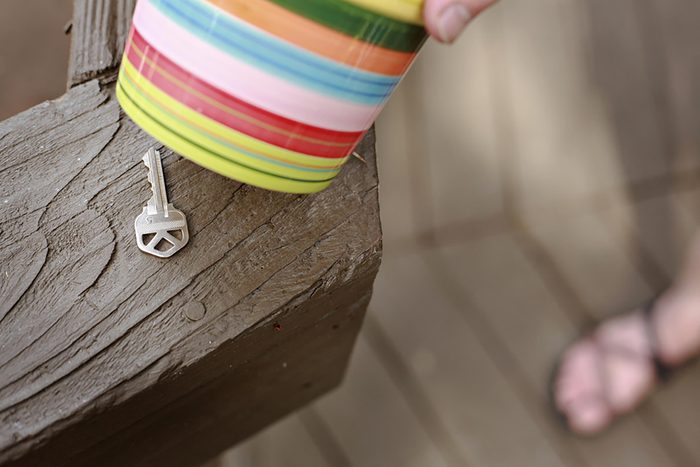
Collect spare keys
“Don’t keep extra sets of keys out where prowlers can find them,” warns Long. Round up all your spare keys that you’ve hidden under doormats, ledges, or flower pots. Give the spares to a neighbor or friend you trust in case your house needs attention while you are away.
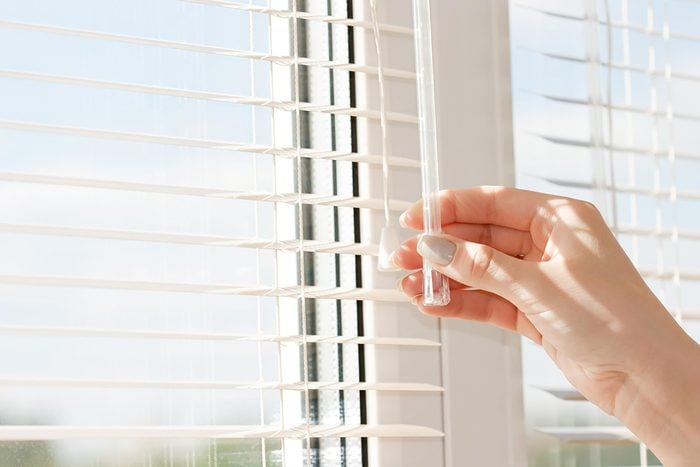
Keep up with appearances
If you normally leave your blinds or drapes open during the day and close them the day you leave for vacation, that could be a calling card for burglars that no one is home. “I recommend a mix of open, partially open, and close,” says Long. “Open blinds that provide full views of TVs, computers, and other valuables can tempt burglars, while partially open blinds provide privacy and security as well as let interior light out, giving the illusion that you are home,” says Long. Put your mail on hold or have a neighbor or friend pick it up for you. Maintain your lawn service schedule or if you normally do it yourself, arrange for someone to cut the grass while you’re gone or shovel the driveway and walkways in the winter. Here are 15 signs your house is vulnerable to being robbed.
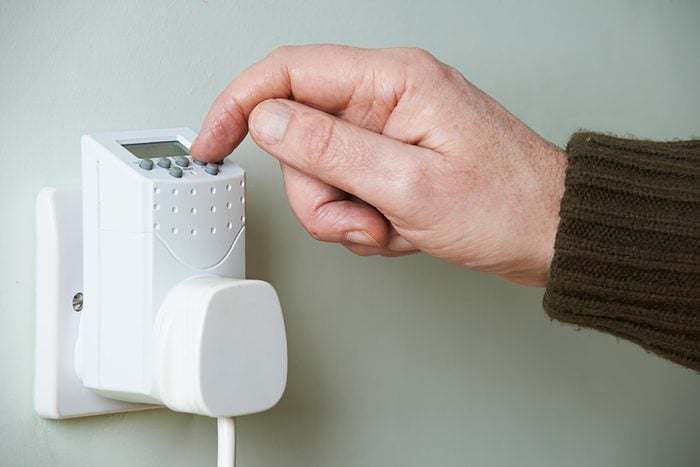
Schedule lights
Timers are a great option to keep up with appearances, but you must use them cleverly. Scheduling lights to come on at the same time, in the same room every night could be a dead giveaway you aren’t home. “Consider when you would turn certain lights on and off if you were home,” suggests Long. “For example, set a timer to turn your porch light on at dusk and off around bedtime. Having your porch light on during the day is a signal that no one is home,” warns Long. If you often travel or just want to beef up your home security, there are home automation tools that assimilate your family’s lighting behavior and imitates this when you aren’t home. You can buy burglar deterrent tools that simulates the light of an LCD using a fraction of the power, all while giving the illusion someone is watching TV.
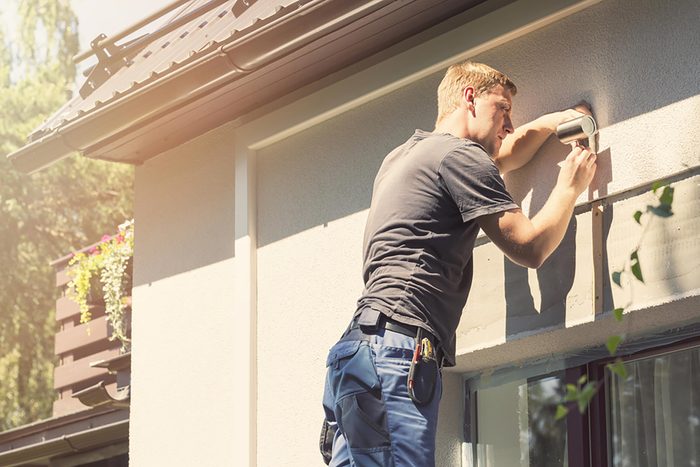
Spotlight intruders
What intruder wants to draw attention to himself? A glaring spotlight on intruders is a great deterrent. “Motion sensors are an essential feature of home security, as they are often the only thing that can detect and deter intruders,” says Long. If you’re installing the sensors yourself, consider the various locations a thief might use to enter your home. Don’t forget places like basement windows or the second floor and locations where thieves will move past a sensor rather than toward or away from it. For the exterior, motion sensors connected to flood lights are great for external security covering driveways, doorways, and perimeters. Check out these 13 safety tips that could save your home from a break-in.
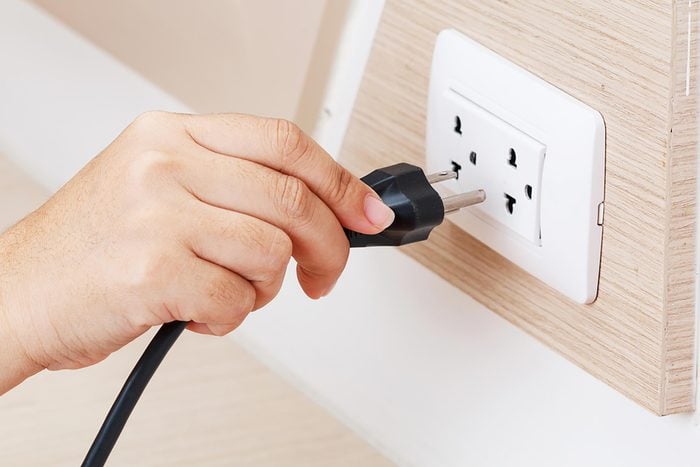
Unplug
Before you unplug from the daily grind, unplug the energy vampires in your home, including all the kitchen countertop appliances, TV’s, DVD players, etc. that suck up electricity when you’re not using them. If you really want to save energy and money on your electric bill, buy advanced power strips. The strip will prevent electronics from using power when not in use.
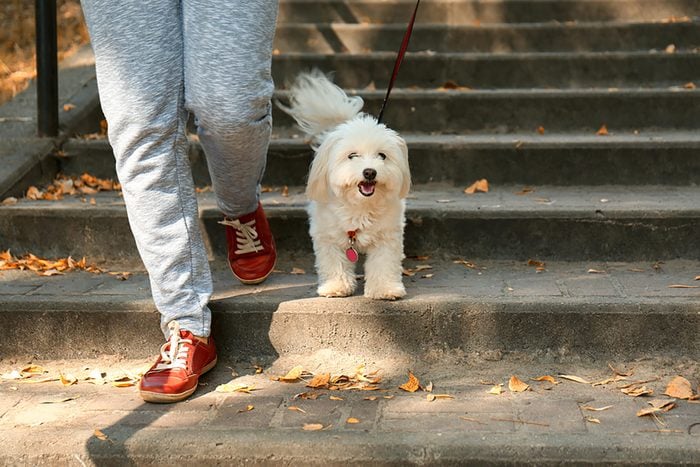
Make sure Max and Fluffy are in good hands
It’s not always possible to take our furry friends along on vacation but you can relax, with a little prep. You have to love the independence of cats. An automated litter box and feeders make it very easy for Fluffy to be comfy while you’re away, but it’s a smart idea to have a trusted friend or family member check in on to make sure they haven’t locked themselves into the basement or run out of food because the feeder got jammed. Dogs, on the other hand can get anxious or scared when left behind or may need more supervision. If you leave your dog at home with a sitter or someone who will be checking in on him, write down your dog’s schedule, how much food he eats and any regular habits (short walks during the day, long one before bed) or quirks (is fond of unrolling the toilet paper) the sitter should be aware of. Don’t forget to leave the vet’s number in the event your pup gets sick. Check out these 10 mistakes you should avoid to keep your vacation stress-free.

